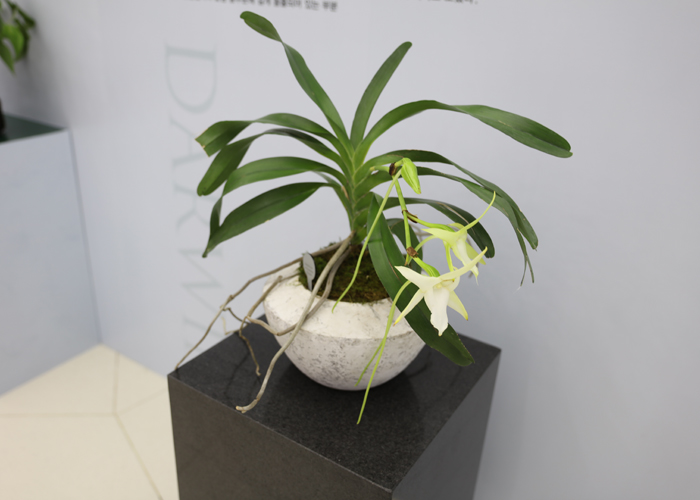
A Darwin's orchid is on exhibit at the National Institute of Ecology. The flower is associated with the naturalist Charles Darwin who correctly predicted that evolution would lead to the development of a species of moth with a long proboscis ideal for pollinating this specific plant.
Over 500 different species of orchid are on display at the National Institute of Ecology.
The institute opened its "Orchid Promenade" exhibit on Dec. 16 at its "Ecorium," a large greenhouse at their facility in Seocheon-gun County, Chungcheongnam-do Province (South Chungcheong Province). Featuring a wide variety of orchids from around the world, the festival is scheduled to run until Feb. 28 next year.
Audiences can expect to see around 500 wild orchid varieties at the Ecorium, which has been designed to replicate the plants' original natural environments.
Well-known varieties are on display, such as Darwin's orchid, which evolved over time alongside a specific moth that pollinates its flowers. Other highlights include the vanilla orchid, from which vanilla flavoring is derived, and the colorfully fragrant Cattelya genus from South America.
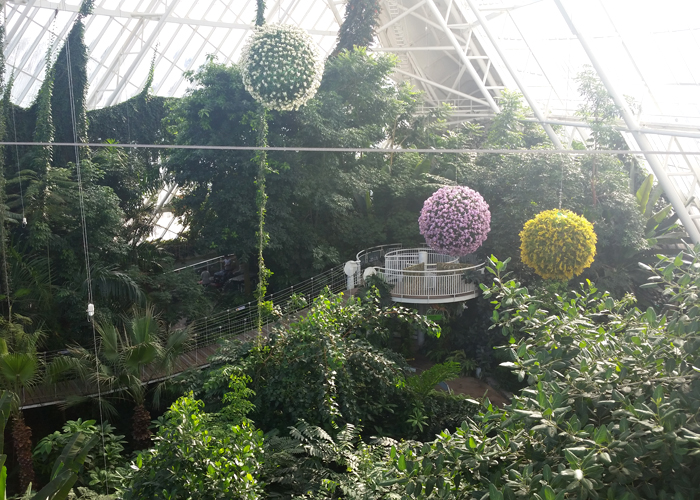
The Orchid Promenade features some 500 different species of orchid, planted in lush tropical environments.
The orchid is a diverse and widespread family of flowering plants with around 30,000 accepted species, distributed across about 880 genera. With the exception of extreme climate zones, the plant thrives in most regions around the world. However, there has been a gradual decline in the number of orchid species due to climate change, urban development and overexploitation of the plant for gardening purposes.
With this issue in mind, the institute hosted an international symposium on Dec. 16 and 17 to coincide with the opening of the exhibit. Korea and eight other Asian countries, including China, Japan and Malaysia, came together to present their research into sustainable cultivation methods and into the protection of rare species of Asian orchids.
The National Institute of Ecology stated that it "will continue to make efforts to protect orchid species that are on the brink of extinction due to climate change, destruction of habitat and indiscriminate collection of the plant."
By Lee Hana
Korea.net Staff Writer
Photos: National Institute of Ecology
hlee10@korea.kr
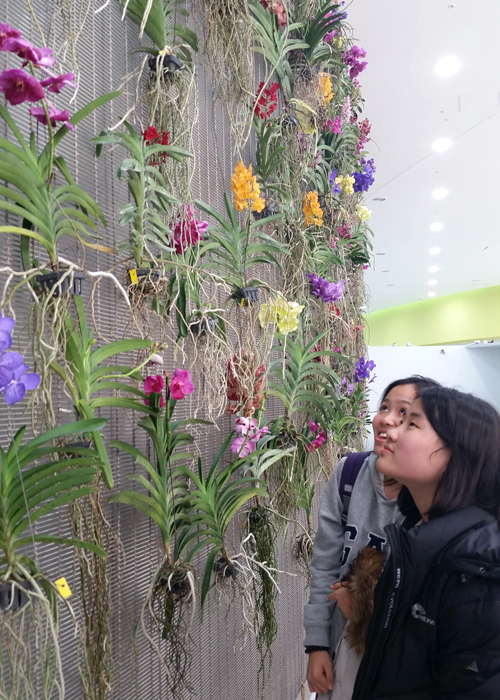
Visitors admire a colorful wall of orchids on display at the National Institute of Ecology.
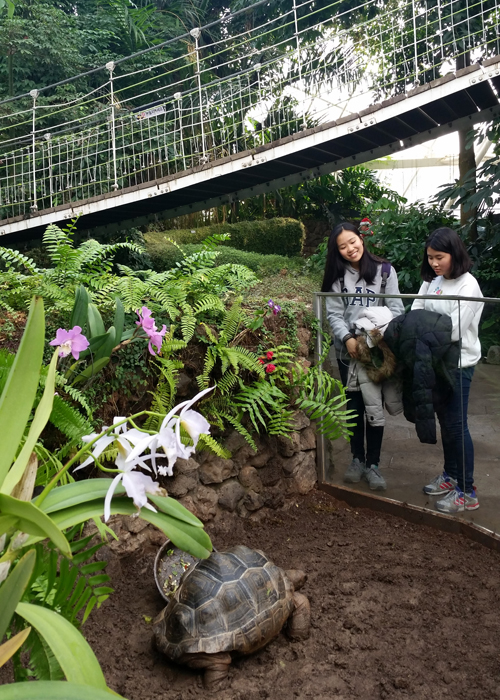
Wild orchids grow naturally in the replicated tropical rain forest inside the Ecorium.
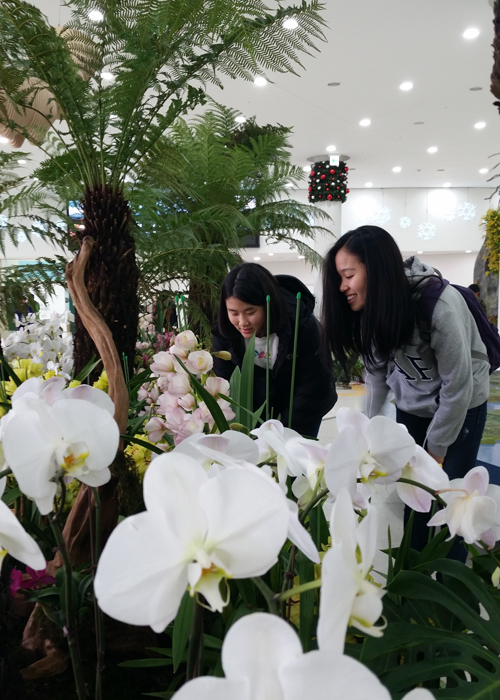
The Orchid Promenade continues until Feb. 28 next year.